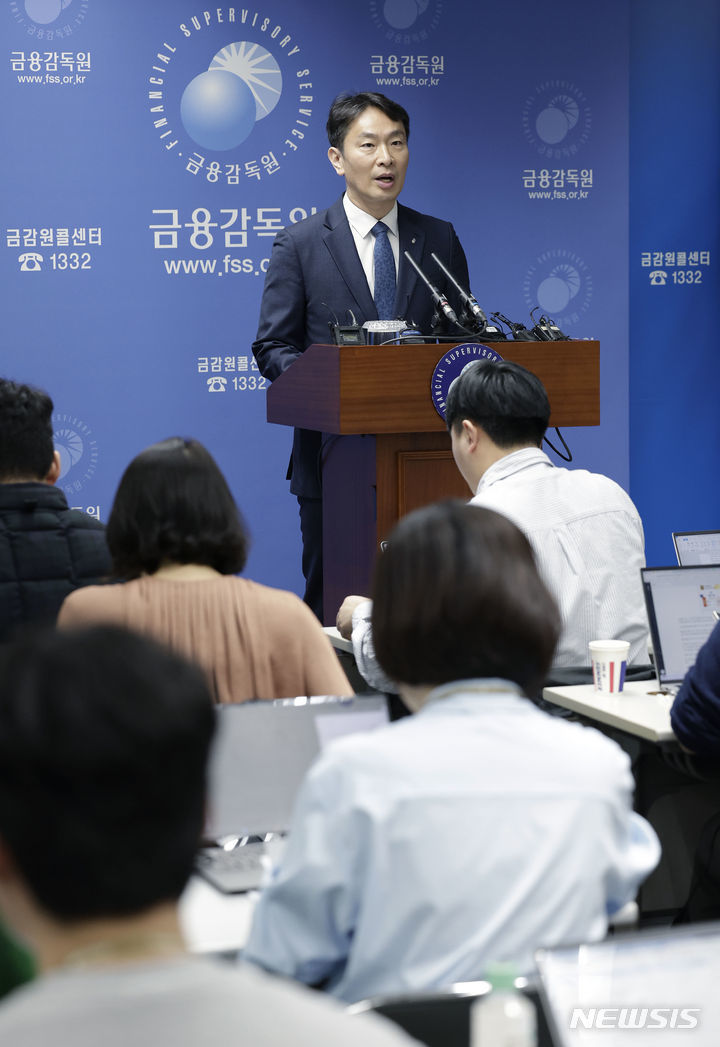Financial Supervisory Service announces dispute resolution standards burden: “Continued discussions with authorities”
Woori Bank, which has a low compensation burden, “reviews voluntary compensation according to the standards”
The banking sector is expressing difficulty as the Financial Supervisory Service proposes dispute resolution standards for large-scale losses in equity-linked securities (ELS) products underlying the Hong Kong H Index (Hang Seng China Enterprise Index). For each bank, there appears to be a clear difference in temperature regarding this compensation plan depending on the degree of burden due to the scale of ELS sales in Hong Kong.
On the 11th, commercial bank A announced, “We will closely analyze the basic compensation ratio and investor consideration factors in relation to the Financial Supervisory Service’s dispute resolution standards announced today and conduct a legal review.”
An official from this bank said, “We are trying to determine whether the compensation ratio calculation method in the Financial Supervisory Service’s guidelines is appropriate in light of relevant current laws and previous precedents,” and added, “Just as in past fund mis-sale cases, lawsuits were filed between financial companies and investment customers. “The final conclusion may be determined by the court’s decision,” he explained.
Commercial Bank B said, “It is difficult to reveal the official position on the Financial Supervisory Service’s ELS inspection results until the report to the Board of Directors, etc. is completed and a conclusion is drawn.” Other banks also expressed their position, saying, “It is currently difficult to issue an official position,” and “We plan to review it closely and continue to consult with the authorities.”
On the other hand, Woori Bank, which has a small burden unlike other banks whose ELS sales in Hong Kong are in the trillions of won, explained, “We plan to review voluntary compensation based on the Financial Supervisory Service’s dispute resolution standards.”
The Hong Kong ELS sales volume by bank is 8 trillion won for KB Kookmin Bank, 2.4 trillion won for Shinhan Bank, 2.2 trillion won for NH Nonghyup Bank, 2 trillion won for Hana Bank, 1.2 trillion won for SC First Bank, and 40 billion won for Woori Bank.
According to the Financial Supervisory Service, the total H-index ELS sales balance as of the end of last year was 18.8 trillion won (396,000 accounts). By sales company, the amount is 15.4 trillion won (243,000 accounts) for banks and 3.4 trillion won (153,000 accounts) for securities companies.
15.1 trillion won, or 80.5% of the total balance, will mature this year. By quarter, it is concentrated in the first half of the year, including KRW 3.8 trillion (20.4%) in the first quarter and KRW 6 trillion (32.1%) in the second quarter.
The amount maturing in January and February of this year is 2.2 trillion won, including 1.9 trillion won in banking and 300 billion won in securities. Of these, the loss was 1.2 trillion won, including 1 trillion won in banking and 200 billion won in securities, recording a cumulative loss rate of 53.5%. If the H index is maintained at the level of the end of February (5678 points), the expected additional loss amount to 4.6 trillion won, including 3.6 trillion won in March to June and 1 trillion won in the second half of the year.
On this day, the Financial Supervisory Service announced dispute resolution standards that focus on differential compensation in the proportion of 0 to 100%. The compensation ratio is calculated by combining seller factors, such as violation of sales principles, and factors considered by each investor.
Based on this dispute resolution plan, the Financial Supervisory Service plans to hold a dispute resolution committee for representative cases starting next month. Each seller can make voluntary compensation in the form of private reconciliation according to the mediation standards.
Source: Donga
Mark Jones is a world traveler and journalist for News Rebeat. With a curious mind and a love of adventure, Mark brings a unique perspective to the latest global events and provides in-depth and thought-provoking coverage of the world at large.




